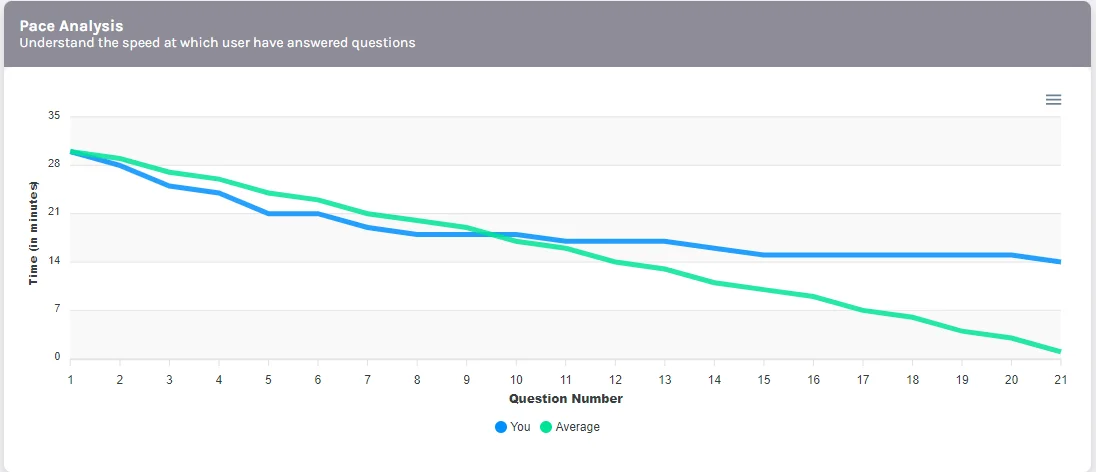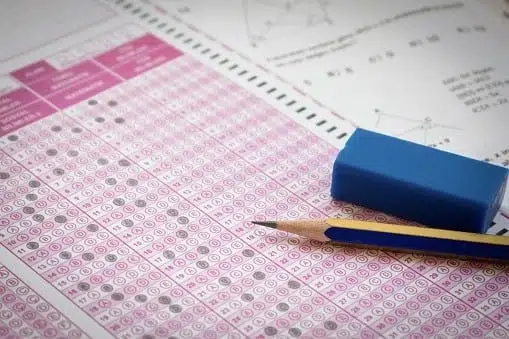Every college graduate can recall the pressure and anxiety when they sat at a desk in an examination hall and thought about how their performance in the next three hours will impact their future. This has become a thing of the old school, as today’s generation has gone degrees further from such testing experiences. Examination methods have evolved from the pen-paper model to the online approach and then digital examination to Artificial Intelligence-based exam simulation software.
In this blog, we will discuss the ways artificial intelligence technology is incorporated into the overall management and improve the college admission testing system.
What is Happening?
Artificial intelligence generally refers to the effort to build robots that can do tasks that were previously only attainable through human intellect. According to Global Market Insights, artificial intelligence (AI) has made its way into higher education, reaching $1 billion in 2020. It is projected to increase at a compound annual rate of over 40% between 2021 and 2027. With the AI-based ACT Preparation platform, various SAT and ACT online assessment tools are being hugely used in the USA and worldwide.
AI is changing admission test methods in more than one way. Here are the top 5 trends to note and keep an eye on.
1. Learner-Oriented Applications
Many AI-backed online platforms have been introduced which are focused on a learner-oriented approach to help students decide their self-learning educational path according to their capabilities. This has become a tech-based education breakthrough because such platforms enable students to identify and learn with their most actual potential.
2. Educational Counselling Through AI
This is another way AI has become a significant supporter of students who have just finished school and is planning to move to college. Colleges use AI for student guidance in various ways, such as deciding majors, shortlisting institutions, scheduling admission tests, and even choosing professional paths. Many SAT Preparation Software and ACT Preparation Software are available on the internet for students’ guidance through which they can prepare themselves for SAT and ACT exams.\

Artificial intelligence is not only helpful for students but for teachers as well. With the help of AI tutor tools, teachers can easily categorize similar-performing students into different groups using highly personalized data of each student in the class. They can pay special attention to the one who needs extra help.
3. Personalization
By developing algorithms that can predict the applicants most likely to be accepted and enroll, from which states and countries, and the enrolled students most likely to progress and graduate and become engaged alums, AI has the potential to change how colleges and universities recruit domestic and international students. Administrative tasks, including admissions decisions, student course selection, course registration, and financial evaluations, may be made faster with AI.
Also, AI-based data-driven preparation methods enable students to see exactly what they need to work on to improve their scores in specific content areas. They can then use this information to practice with targeted exercises and track improvement over time with additional practice tests and sections.
4. Marking System
Evaluating answer sheets manually was a challenging, time-consuming, and error-prone task which is now way simplified through AI-based marking assessment tools such as SAT Online Assessment and ACT Online Assessment tools. Such devices facilitate the evaluation process with the help of technology, where examiners can access an online database of all answer sheets backed with onscreen marking systems.
5. Image and Voice Recognition

What’s next?
Colleges using artificial intelligence for admission tests have greatly simplified the lives of many students and teachers. With this, teachers are less stressed about administering and arranging tests, while students enjoy a more straightforward and safer way to win the tests. Still, more AI applications in online tests are making their way to the point where human interaction will be eliminated.









